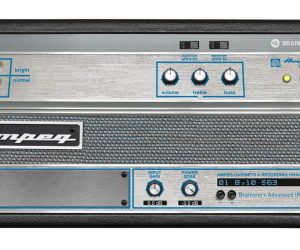
MPEG’s Inaugural Survey Findings
The Music Producer & Engineers’ Guild Of Australia reveals results.
The Music Producer and Engineers’ Guild of Australia (MPEG) unveil the results of its inaugural survey report, shedding light on critical insights within the music production and engineering industry. With a mission to champion the interests of music producers and sound engineers, MPEG plays a vital role in fostering talent, advocating for industry interests, and facilitating community development.
Established in 2022 by award-winning producer Anna Laverty, alongside foundation directors Cath Haridy & Tom Larkin, MPEG now boasts over 300 members who have worked with some of the world’s most successful artists. Foundation members include Mark Opitz, Nick Launay, Eric J Dubowsky, Nina Las Vegas, Uncle Kevin Starkey, Virginia Read, Aroha Harawira, Alice Ivy and many more.
This inaugural report is designed to help guide MPEG toward appropriate strategic goals and shed light on the challenges and opportunities faced by music producers and engineers in Australia.
This research was commissioned by the MPEG board, with assistance from Dr. Lachlan Goold (Magoo) from the University of the Sunshine Coast. He shares, “These findings provide a comprehensive understanding of Australia’s music production and engineering landscape. MPEG stands poised to drive positive change by leveraging this insight to create a more supportive and sustainable environment for professionals across the industry. The recording sector is a critical driving engine of the Australian music industry. In many aspects, the roles and work conditions of music producers have changed dramatically.”
The survey results found that financial stress and self-employed, unregulated working conditions contributed to poor mental health among 19.8% of respondents.
Further key findings included:
- An alarming 31.1% of respondents reported being underemployed, while 13.3% revealed that they work more than 60 hours per week, highlighting the need for sustainable working conditions
- Diversity is an issue for music producers and engineers globally. Notably, 85.8% of respondents identified as male, with 11.3% as female, and 1.9% as non-binary. There were no specific identifications as Aboriginal or Torres Strait Islander, with 2.8% opting not to disclose or indicating uncertainty
- Mental health emerged as a significant issue, with 51% of respondents rating their mental health as average to poor. Additionally, 40.6% of participants reported average to poor physical health, emphasising the importance of considering well-being within the sedentary nature of the profession
- A significant portion of respondents (50%) indicated working for free at times, while another 17% engaged in speculative work for larger projects. Financial instability emerged as a pressing concern, with 47.2% citing music production or engineering as their primary income source, and 23.5% supplementing their income through other audio-related work
- Demonstrating the industry’s expertise, 50% of respondents offered at least six different services in their fee structure, ranging from engineering to mastering. 29.2% possessed a bachelor’s degree, and 38.8% held accredited or non-accredited education, indicating a move away from the traditional assistant/apprentice model
- The workforce is highly skilled, with 50% of respondents reporting at least six different services in their fee structure, including tasks such as engineering, mixing, mix revisions, production, pre-production, stems for various purposes, and mastering
- Despite the high skill level, many of the survey respondents feel that they are not properly remunerated or credited for their work. This has resulted in a high number of respondents reporting high levels of financial stress and generalised anxiety.
On the findings, Anna Laverty shares, “I consider this report the first major achievement of MPEG. We have worked for months to ensure we asked the right questions so that we could find out what issues our members, and indeed all music producers and sound engineers in Australia, face. We hope to use the information in this report to help support and create opportunities for our members to aim higher and achieve more in their careers. We can now also see the massive gaps in our community and hope to nurture new talent into the space. This report will help individual producers and engineers realise that they are not alone in their feelings and experiences and will encourage them to discuss them more freely.”
‘The Inaugural Music Producer and Engineers’ Guild of Australia survey report can be read in full here.















RESPONSES